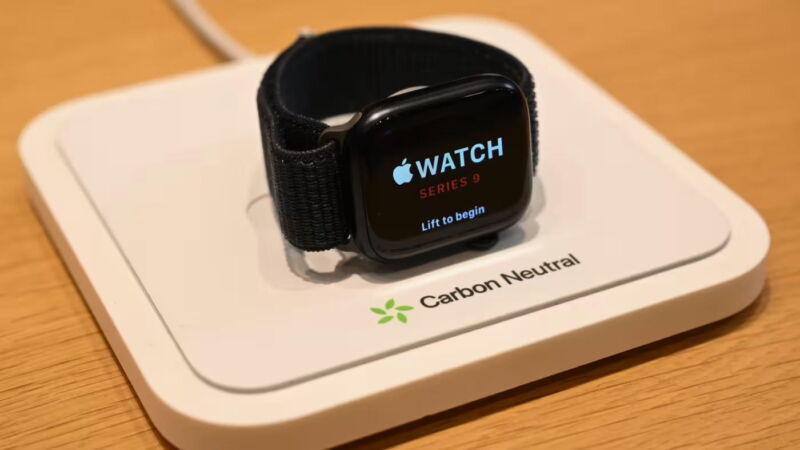
Apple faces scrutiny from European environmental and consumer groups over its claims that its latest devices are “carbon neutral,” a term that Brussels proposes to ban in corporate marketing because it is “misleading.”
The iPhone maker last month put its “environmentally friendly” credentials at the center of its biggest annual product launch. It called some Apple Watch models its “first-ever carbon neutral products,” part of a drive to extend the classification across all its devices by the end of the decade.
But the US tech giant’s decision to rely on credits to cancel out the 7-12 kg of greenhouse gas emissions behind each new Watch prompted a sharp reaction from consumer groups in the wake of a long-trailed clampdown by the EU on “greenwashing.”
“Carbon neutral claims are scientifically inaccurate and mislead consumers,” Monique Goyens, the director-general of BEUC, the European consumer organization, told the Financial Times. “The EU’s recent decision to ban carbon neutral claims will rightly clear the market of such bogus messages, and Apple Watches should be no exception.”
The debate over Apple’s claims highlights the problems facing companies that are trying to follow environmentally sound policies, while seeking to make marketing statements to tout their green credentials.
Apple told the FT its move was “a proof point of one of the boldest climate commitments in industry today.”
“To achieve global climate goals, we need immediate action to drastically cut emissions paired with investments in conservation and carbon removal at scale,” it said.
The US group’s efforts as well as its progress on recycling targets and emission cuts are in sharp contrast to, for example, its main rival Samsung, which leaves out key emission details in its 2050 net zero target.
In the days following the Watch launch, Brussels said that by 2026 it would ban “neutrality” claims that are based on the purchase of carbon credits, which compensate for the release of emissions by absorbing carbon dioxide from the atmosphere.
The European Parliament and Council, two decision-making bodies, reached a political agreement in September to ban “misleading advertisements,” including “claims based on emissions offsetting schemes that a product has neutral, reduced or positive impact on the environment.” This accord is yet to be formally adopted.
Climate campaigners have also questioned whether tracking carbon emissions provided a thorough assessment of the environmental impact of small electronic devices such as smartwatches and wireless earbuds, which can be difficult to repair and often end up as e-waste.
“It’s misleading to consumers to give the impression that buying the Watch has no impact on the climate at all,” said Gilles Dufrasne, a policy officer at the non-profit Carbon Market Watch, which is in part funded by the EU. “It’s accounting tricks.”
reader comments
106